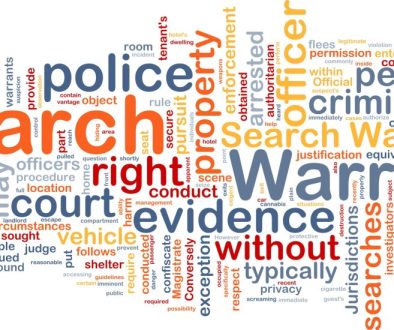New Jersey & Guns – What is the Graves Act why everyone needs to know about it
New Jersey has some of the nation’s toughest gun laws regarding the unlawful possession of a handgun or firearm. The Garden State strictly regulates the lawful and the unlawful carrying of handguns and firearms within its boundaries. Unlike Pennsylvania, New Jersey maintains mandatory minimum sentencing for the unlawful possession of a handgun. New Jersey, like New York is a may issue state. Pennsylvania is a “shall issue state” and please read my article on this issue for more information on it. You may also want to check out my book in the free download section—What Everyone Should Know About Guns, Drugs, & Defense Lawyers in Pennsylvania
New Jersey’s Policy on Illegal Guns – Jail not probation
New Jersey’s approach to illegal handguns and firearms is the “promise of imprisonment”, rather than rehabilitation. In 1983, the New Jersey Supreme Court in State v. Des Martes, stated if a person is convicted of a crime against another while using or possessing a firearm in state, that person will go to prison for at least 3 years.” The law now in New Jersey calls for a mandatory 42 month state prison. The New Jersey Legislature amended the Graves Act in 2013 to increase the mandatory minimum term to the greater of one half or one third of the base term which equals 42 months. The purpose of the Graves Act is deterrence through widespread knowledge that one who is convicted of using or possessing a firearm while committing a crime will not escape a mandatory minimum jail sentence! This is the reason why you must a hire qualified criminal defense lawyer
The Expanded Graves Act
While the decision is Des Martes was initially limited to the imposition of a mandatory minimum term in those situations where a person carried a firearm for an unlawful purpose or used it to commit a “enumerated crime” the New Jersey legislature, in 2008, expanded the scope of the Graves Act. The 2008 amendment imposed the mandatory minimum 42 month sentence on the mere unlawful possession of certain firearms. This was a huge change to the law.
Despite the mandatory minimum sentencing in New Jersey there is a possibility that a person charged with an illegal gun or firearms offense is eligible for a waiver of the mandatory minimum sentence.
Graves Act Waiver
Under NJSA 2C:43-6.2, an individual charged under the Act is eligible for full waiver to a probationary term rather than a custodial sentence where the mitigating factors, as defined by NJSA 2C:44-1, substantially outweigh the aggravating factors.
Even if a person isn’t eligible for a full waiver, he or she may be eligible for a partial waiver which would reduce mandatory 42 month prison sentence to a one year term. For a partial waiver, the prosecutor must only determine that the aggravating factors applicable to the offense and the offender himself do not outweigh the applicable mitigating circumstances. If you are charged with a gun crime in New Jersey, your New Jersey Criminal defense lawyer must have a strong understanding of the Graves Act
The following are considered aggravating factors in New Jersey:
- The nature and circumstances of the offense
- The gravity and seriousness of the harm inflicted on the victim
- Risk that the defendant will commit another crime
- A lesser sentence will depreciate the seriousness of the defendant’s offense because it involved the breach of public trust
- The likelihood that the defendant is involved in organized crime
- The extent of the defendant’s prior criminal history
- The defendant committed the crime pursuant to some agreement for money or other incentive
- The defendant committed the crime against law enforcement
- The need to deter defendants’ and others from violating the law
- The crime involved fraud or deception
- The person committed the crime against a person who the defendant knew or should of known was over the age of 60
- The act involved domestic violence
The following are considered mitigating factors in New Jersey:
- The defendant did not cause or threaten serious harm
- The defendant did not contemplate that his conduct would cause or threaten serious harm
- The defendant acted under strong provocation
- There were substantial grounds to excuse or justify the defendant’s conduct, while failing to establish an actual legal defense
- The defendant has compensated or will compensate the victim or will participate in a program or community service
- The defendant has no prior criminal history
- The defendants’ conduct was the result of circumstances unlikely to reoccur
- The character and attitude of the defendant indicate that he is unlikely to commit another offense
- The defendant will respond well to probation
- Imprisonment of the defendant would entail an excessive hardship to himself or dependents
- The willingness of the defendant to cooperate with law enforcement or authorities
- The conduct of the youthful defendant was substantially influenced by a person more mature than the defendant
For more information on the Graves Act, I encourage you to call our office and speak to me about your case.
Contact Our Criminal Defense Lawyers in PA & NJ
Please click here to contact our Philadelphia criminal defense lawyers. We offer free case reviews and serve the following areas in Pennsylvania and New Jersey, Atlantic City, Camden, Cherry Hill, Chester, Conshohocken, Doylestown, Media, Norristown, Philadelphia, Pottstown, Salem, Upper Darby, Upper Merion, Upper Providence, Vineland & Woodbury areas.



